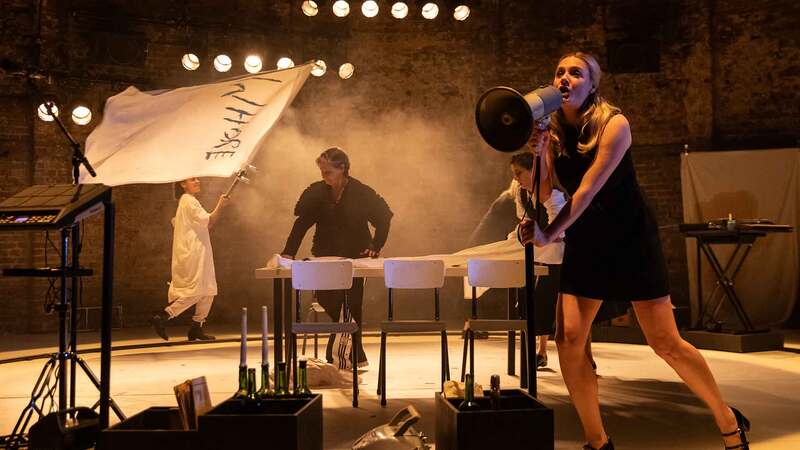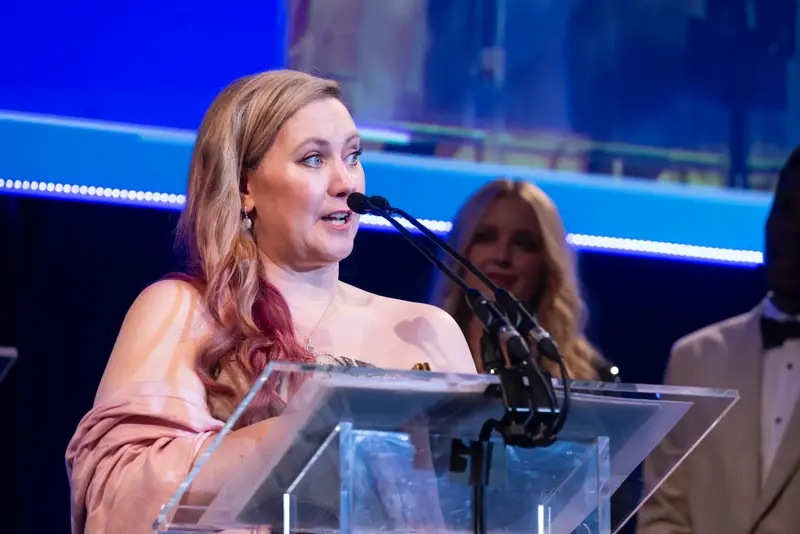You are viewing your 1 free article this month. Login to read more articles.
The Unlikely Pilgrimage of Rachel Joyce
The hero’s quest is a staple of literature, from Homer’s Odyssey to The Lord of the Rings. In Rachel Joyce’s charming début The Unlikely Pilgrimage of Harold Fry the eponymous Harold makes for, well, a very unlikely hero indeed.
When the novel opens he is a retired man living the quiet life with his wife Maureen in Devon, who receives a letter out of the blue. It’s from Queenie, a former colleague whom Harold hasn’t heard from in years. She’s dying of cancer in a hospice in Berwick-upon-Tweed. Intending to post a reply, Harold finds himself walking past the postbox. He keeps on walking, and walking, until it becomes clear he is going to walk all the way to Northumberland to deliver his message in person. Queenie just has to hold on until he gets there.
As Harold journeys the length of England—encountering blisters, strangers and his own memories—the quietly devastating secret that connects Harold and Queenie across the years is revealed. Deeply affecting, the story is also shot through with the comic lightness of a Paul Torday or Marina Lewycka novel.
The Unlikely Pilgrimage of Harold Fry began life as a radio play. Seven years ago, Joyce started writing it for her father, who had just been diagnosed with cancer. It was, she thinks now, a way of trying to keep her father alive: “I started writing it for him but knowing that he wouldn’t hear it. He died before it went out. But he was very much present as I was doing it.” The play was broadcast on BBC Radio 4 in 2006, performed by Anton Rogers, Anna Massey and Niamh Cusack.
Joyce is an established playwright, having written more than 20 original afternoon plays for BBC Radio 4, as well as adaptations for the Classic Series and “Woman’s Hour” (including Anne Brontë’s The Tenant of Wildfell Hall, Charlotte Brontë’s Villette and Portrait of a Lady by Henry James). But two years ago she decided that, although she loved writing for radio, she wasn’t doing what she really wanted to do: write a novel.
Sign of commitment
She signed up to the Faber Writing Academy (other alumni includes SJ Watson) “as a sign of commitment”, and her thoughts turned back to Harold Fry: “I remember lying in bed one morning and thinking: ‘That play, I never really finished that idea . . .’.” She knew she wanted to write about an ‘everyman’ figure whom readers could relate to, and an -ordinary man doing something quite extraordinary.
Harold, a not so sprightly 65-year-old who, as his wife points out, only ever walks to the car, sets off with no hiking boots or compass, no map or change of clothes—not even a mobile phone. Along his 627-mile journey he meets people who both help and hinder him but he is propelled by the need to reach Queenie before she dies. Joyce was interested in “the idea that you can pass someone on the street, and you might connect with them in a glance or in some way, but there will be so much that you don’t know. Each of us, in these ordinary lives that we are leading, have quite extraordinary stories. I find that very moving.”
When writing the novel Joyce used all her “radio skills”, honed over 16 years, to keep the reader’s attention and to “make sure the story was really driving all the time”. When writing for radio, she explains, every scene has got to have a function: “If it doesn’t, you can’t have it.
“I do think radio drama is a brilliant way of learning, because it’s such an imaginative medium. And it’s about a relationship between you [the playwright] and the listener in the same way that a book is about you [the novelist] and the reader.”
Joyce is already hard at work on her second novel, about a mother involved in a hit-and-run on the school run: “It’s about one moment in time when you do something you really regret, and then the ripples and the repercussions.”
“With The Unlikely Pilgrimage of Harold Fry I knew that I wanted people to feel emotional at the end. Whereas in this next novel, I know I want people get to the penultimate paragraph and feel a real physical chill. I know really clearly in my head the feeling, the experience, I’m trying to head towards.”















